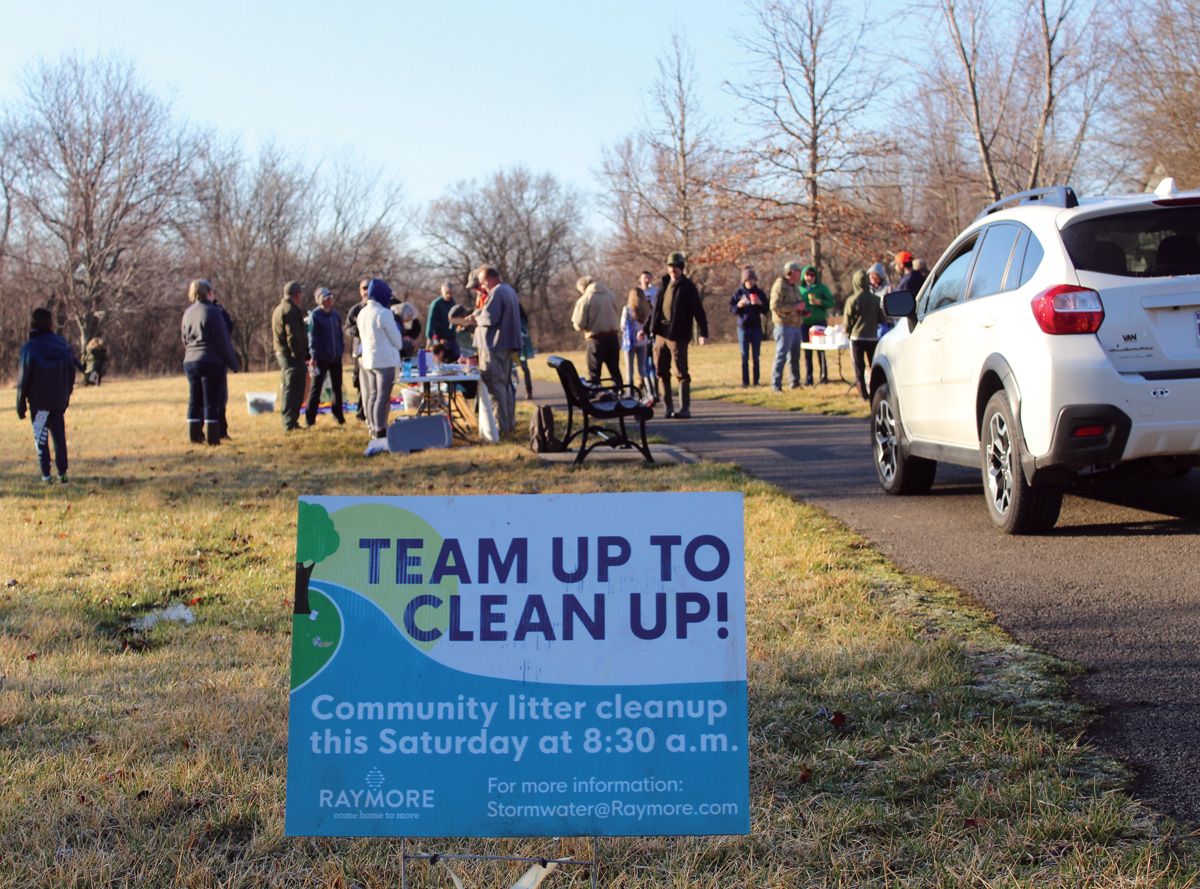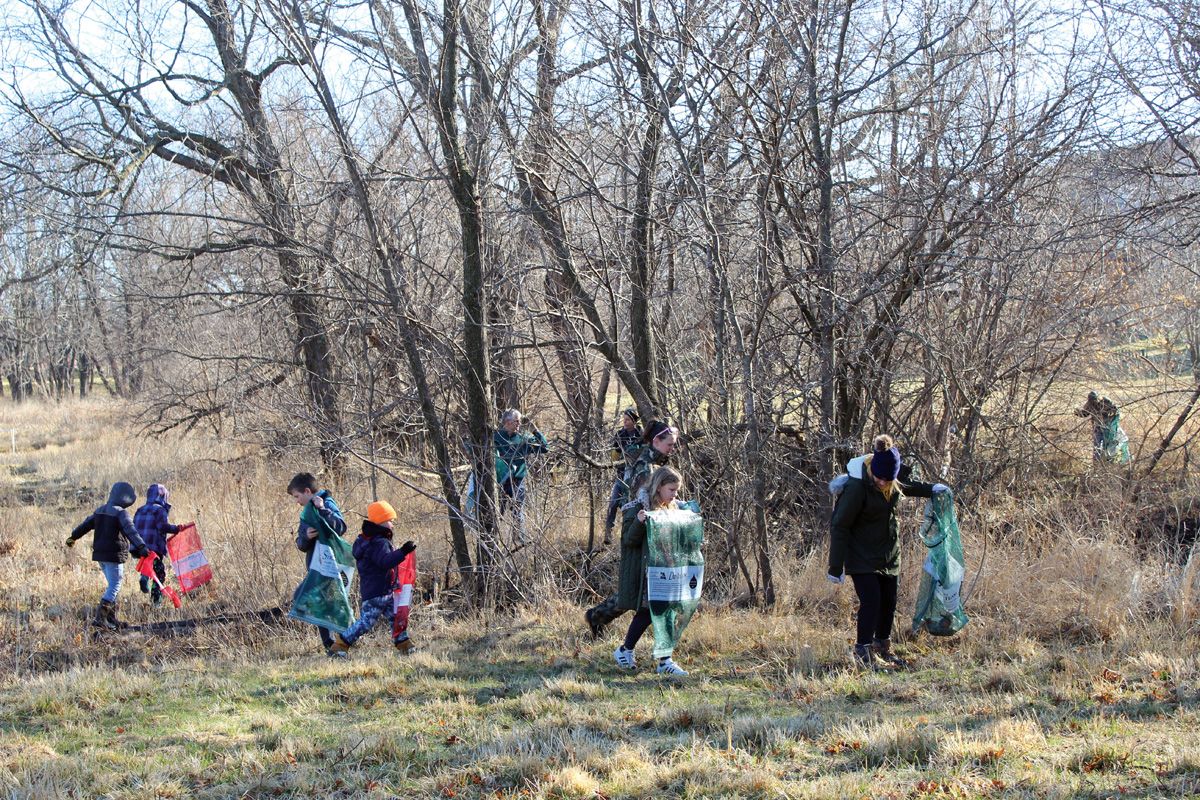
Residents gathered at Linear Park to preserve Raymore’s ecosystem and natural beauty during the seventh annual Community Litter Cleanup. (Tyson Fisher/Raymore Journal)
Community Litter Cleanup keeps Linear Park fresh
By Tyson Fisher
A stroll through Linear Park is a scenic one thanks to local volunteers who participate in the annual Community Litter Cleanup.
Each year, residents get together at Linear Park, located south of Lucy Webb Road at S. Huntsman Blvd., to clean up litter and other debris. In addition to maintaining the aesthetic features of the area, the annual event also improves the water quality and habitat for wildlife.
Linear Park features Missouri-native plants in a rain garden and a pollinator garden. Those plants are important for the health of the watershed, according to Doris Sherrick, secretary of the South Grand River Watershed Alliance. Essentially, these plants are nature’s water purifiers.
Human activities over the last few centuries have threatened native plant species. Consequently, the quality of the water in the waterways has been negatively impacted. Removing litter helps preserve the natural environment, which keeps the water quality high.
However, non-native, invasive species also pose a threat to Missouri plants. Japanese honeysuckle is among those invasive species. During the Community Litter Cleanup, volunteers also look for Japanese honeysuckle to eliminate. Other invasive species include Johnson grass, teasel, Callery pear and sericea lespedeza.
“There are actions we can each take to diminish the aggressive exotic plant threat and improve the health of our watershed,” the South Grand River Watershed Alliance states on its website. “Three very important actions are to become acquainted with these species in your own area; remove any from your property; and replant the area with native plants.”
This year’s Community Litter Cleanup was sponsored by the South Grand River Watershed Alliance, Missouri Stream Teams, Missouri Department of Conservation and the City of Raymore.
